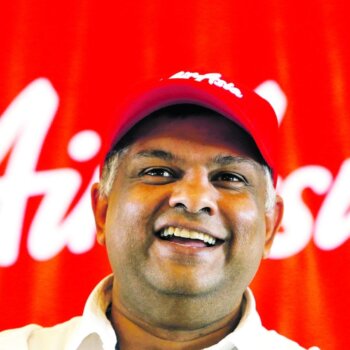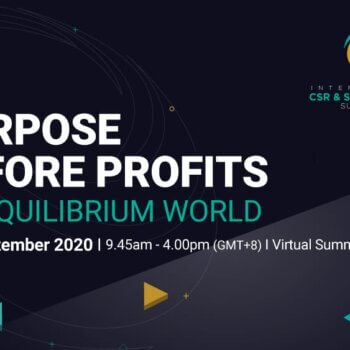Tak Fung is the founder of Supermono Studios , an app making studio that has made such successful and popular mobile games as “Rescue Rush” and “Forever Drive”. Tak’s journey began after graduating from the University of Cambridge with a degree in Computer Science. He was employed by Lionhead Studios for 7 years, where he has worked on numerous renowned games such as the “Fable” series of games. He moved on to working at Geometrics at Cambridge before embracing work as a freelancer. As a freelancer he has worked for various companies including Passion Pictures, United Visual Artists and Sony. With a plethora of experience, in 2009 Tak Fung created Supermono Studios.
Tak Fung takes the seat today with the Asian Entrepreneur, as he tells us about his studio and experiences developing app games.
In your own words, what does Supermono Studios do?
We are an independent studio focused on creating visually exciting apps that try and capture your imagination! They mostly involve games but we are always trying new things.
I understand that you’ve been in the game industry for awhile, what led you to start Supermono Studios?
It was a time when I felt it was right to go into a quickly emerging digital market, which had very low barriers to entry and was very suited to my skills. In particular at that time, I had an idea for this game I wanted to do, and it seemed like a great opportunity to try it out on the App Store and see how easy it was to distribute it WorldWide. I was already freelancing so it was a very natural move to start an independent studio making things I like , since I was free to do so.
So what sort of games do you guys create?
Mostly action and skill games, we have tried a lot of genres! We’ve created a Shoot-em-up, a Driving game, a Tilt game, a To-Do-List with bits of game, and we’ve tried all sorts of monetization models including Free-To-Play, Premium, DLC and so on. As long as it’s an interesting idea that rattles in my head for long enough then it will be good to try!
How was it like with the initial release of early games?
Our first game was MiniSquadron, which was a very well received game. Which was followed by several others, which were well received, such as EpicWin. Both showed a level of quality that few were willing to achieve at that point in the App Store’s life, and hence they stood out.
And how did you guys market the games initially?
Word of mouth and Twitter! It is a lot harder these days but initially I adopted a Grass Roots approach whereby I did a lot of blogs about the game I was making, whilst in progress. I also contacted lots of press and forums in order to excite people. The competition then was much less than it is now so the marketing approach these days needs a vastly different approach.
So was money an issue for the studio initially and did that affect how you approach work?
Initially, because I was self-funded, money was always an issue and a sharp reminder of the time you have left to get the work done. But I really enjoyed the work, and it was an amazing feeling to just do whatever I felt like that aside from the long hours, I really can’t complain too much!
In your opinion, how should one approach developing apps?
In my opinion, you have to be intelligent in how you spend your time, how you scope your project out and how you network to find the best people to work with in order to make your game a success. This includes teaming up with strong artists, Dave Ferner and Rex Crowle in my case and also being focused on what you do. It’s also very important to be totally objective about the quality of your work by testing it on unbiased people who will tell you if your game is rubbish! It may hurt but it is always for the better.
And is there an art to creating games?
Creating games is art and for me, I want to separate the art from the business. Making wonderful games requires process, research and most importantly a voice or an idea that you feel is rich and deep enough to communicate to the world. Many people have achieved this but there’s no real formula to it apart from a certain set of common attitudes in the developers whilst making it. When you put in monetization however, the goalposts do change and the game design must change to incorporate that too. Obviously it is good to achieve revenue for your game so you can continue your craft, but it is a different subject matter and involves other processes to guide game design.
How do you find out what the market wants?
I try to make games that I think is cool and fun, with an idea that it is of interest to a market of choice. It’s always hard to find out what the market wants – they usually don’t know themselves! There’s the old saying where Henry Ford, inventor of the motor car, said if he had asked people what they wanted, they would have said faster horses! At the end of the day , it’s important to be working on something you believe in yourself, so I try and keep that in mind.
So how have you dealt with competition in the industry?
Competition in the App Store, especially in the field of games, is 100% saturated. You will be up against huge companies with massive budgets, all the way to independent small teams of 1-2 who are creating wonderful niche games. You really need to work hard and find a voice in your games to stand out.Its a balancing act of doing something original and unique that also resonates with an audience. We try not to be too niche, but at the same time we know its hard to go head to head with some of the big names on the App Store now. Quality of work is still a good basic component of our games that you can rely on though.
Any major disappointments so far?
Our free to play modelling was very difficult to get right so we will have to think long and hard about our future monetization plans.
What does the future hold for Supermono Studios?
Tenacity and humility. Staying on course when things get hard, remembering that there’s still so much to learn no matter how far ahead you’ve gotten in the game.
What are some important lessons you’ve learnt that you could share with our readers?
I think one of the most important lessons I’ve learnt is that there is really no substitute for experience in running a startup/business on your own. On that, it is also never the perfect time to start, except “as soon as possible or now”! There are a lot of processes and methods you can prepare your entrepreneurship with, but there is also a lot of luck involved. All I do know is, if you do not go ahead and try it, then I can guarantee you will have 0% of becoming successful, whereas if you are brave enough to have a go, then you are at least rolling the dice with a chance of winning!
In your opinion, how could entrepreneurs improve their results?
Iterate and learn from mistakes. Be persistent and use failures as lessons. Understand that what we do will inherently have chaotic results – especially if we operate within society, which we all do, and that markets are irrational, so never lose hope or optimism, but be grounded in reality.
So why do you do what you do? Why entrepreneurship?
Interesting question! I do what I do because I believe one of the big reasons why I live is to turn my ideas into reality. Not all my ideas are actually possible in my skill set and time on this earth to produce, but of those that are – then I want to arrange things in my life such that I can do that. Importantly for me – although I have made a lot of games, I don’t limit myself to them.
Connect with Tak Fung and Supermono Studios today:
Email: [email protected]
Twitter: https://twitter.com/SupermonoGames
Website: http://www.supermono-studios.com/
Facebook: https://www.facebook.com/SupermonoStudios






























